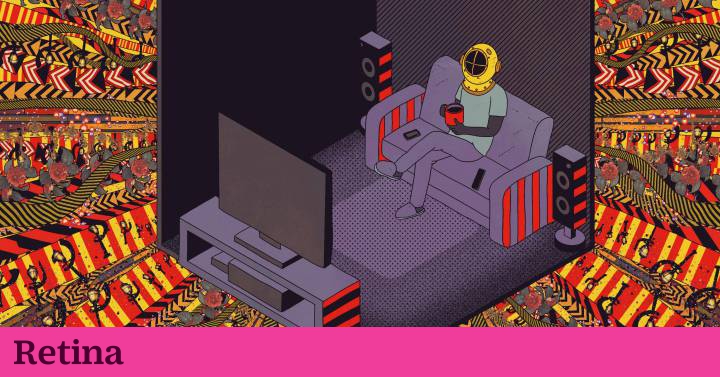FOLLOW
- Follow
Humans are social animals: we like the herd, the tribe, feeling part of the crowd, participating in something bigger than ourselves. Since ancient times we have participated in rites, markets, parties and burials. We like dances around the bonfire, the circus with gladiators or clowns, San Fermín, going around the black stone in Mecca, the festivals that Goya painted, the carnival in Rio, the stands that shouts a goal or jelly at a rock band, on March 8 or the photo of Columbus.
Despite the gregarious tendency of our species, loneliness has already spread as an epidemic in recent decades. As individualism advances, community life has been weakening and neither family nor circle of friends are as extensive as they were. As life expectancy increases, we have cities full of old people alone. And digital life offers solitary entertainment without limit without the uncomfortable brush with other humans from the deceptive feeling of living connected to a diffuse community.
Among young people around the world, the phenomenon called hikikomori abounds: they spend the day in the bubble of their room, refugees in the console, the computer or the mobile. They believe they have a life, just that one, in cyberspace. The term appeared in the 1990s in Japan, where a survey detected more than half a million digital hermits, mostly males between the ages of 20-30. This way of life has also been called cocooning , from the English cocoon , cocoon, or nesting , from nest , nest. And, without so many misanthropic connotations, marketing sold us hygge as a reference: that Scandinavian lifestyle very focused on the simplicity of home life, that of the "independent republic of my house". Very typical of places with long, dark and cold winters, not of a Mediterranean country.
Today the society of fear confines us entirely within four walls, and we had better accept it. The coronavirus arrived and schools and stadiums were closed, bars, cinemas, hotels or discotheques were emptied, we were confined to our homes for a good reason; stop a deadly escalation. The perfect, and obligatory, plan is for sofa and blanket, Netflix or HBO, Play Station or XBox, homemade dinner, better, but if not from Glovo and Deliveroo, shopping on Amazon and Alibaba while the deal is still allowed. Telecommuting in pajamas, days without shaving or combing your hair. Our only collective ritual, now, is the applause of the eight from balconies and windows.
The Wired magazine gives these tips to the WFH ( work from home , those who work from home): get dressed, reserve a space as an office, prepare healthy snacks , take breaks for gymnastics or walk the dog ... All this is said because deep down we know that isolation is not our habitat, that we need the herd.
Teleworking with flexibility can be a historic advance for workers, and we will surely learn a lot from this experience. But will we learn to live without human touch, without hugs or two kisses, without the mass rites that have always fascinated us? When the plague passes, will we be what we were again?
OTHER ARTICLES BY THE AUTHOR
Open close
In praise of the 'boomer'
The mobile took me to the barricade
Transparency Day (not a Christmas story)
If Turing lives, this must be the future















